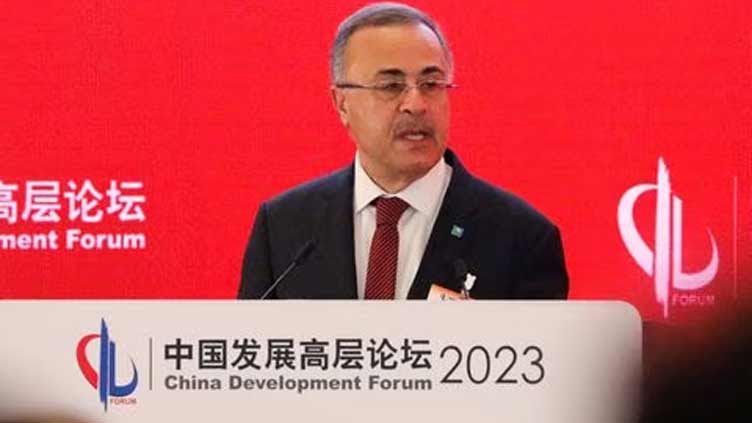BlackRock names Aramco boss to board

Business
His expertise in the Middle East will fill the gap left by Bader Alsaad
LONDON (Reuters) - The world's top asset manager BlackRock (BLK.N) has named Amin Nasser, the chief of the world's largest oil company Saudi Aramco (2223.SE), as an independent director.
Nasser joined Saudi Arabia's state oil giant as a petroleum engineer in 1982, and decades later in 2019 led Aramco's initial public offering.
His expertise in the Middle East will fill the gap left by Bader Alsaad, chairman of the board of the Arab Fund for Economic & Social Development, who is not standing for reelection on BlackRock's board in 2024, the asset manager said on Monday.
BlackRock has sought to strike a balance on the issue of climate change, continuing to invest in fossil fuel companies, while nudging them to adopt energy transition plans.
In a note to clients earlier this month, the asset manager estimated global average annual investment in the energy system would jump to $4 trillion through 2050, up from $2.2 trillion in recent years.
BlackRock, which had about $9.4 trillion assets under management as of end-June, has projected that by 2030 at least three quarters of its investments will be with issuers of securities that have scientific targets to cut greenhouse gas emissions on a net basis.
Aramco, for its part last October unveiled a $1.5 billion sustainability fund to initially focus on areas including carbon capture and storage, greenhouse gas emissions, as well as hydrogen, ammonia and synthetic fuels.
However, Nasser said the current global energy transition plan was flawed.
"We need to realise that today alternatives are not ready to shoulder a heavy load of the growing energy demand and therefore we need to work in parallel until alternatives are ready."
Saudi Arabia and fellow Gulf Arab states have sought to bolster their green credentials. Riyadh in 2021 said the kingdom aims to reach net zero emissions of greenhouse gases, mostly produced by burning fossil fuels, by 2060.
Scientists say the world needs to cut greenhouse gas emissions by around 43% by 2030 from 2019 levels to stand any chance of realising targets agreed in the 2015 Paris Agreement.

